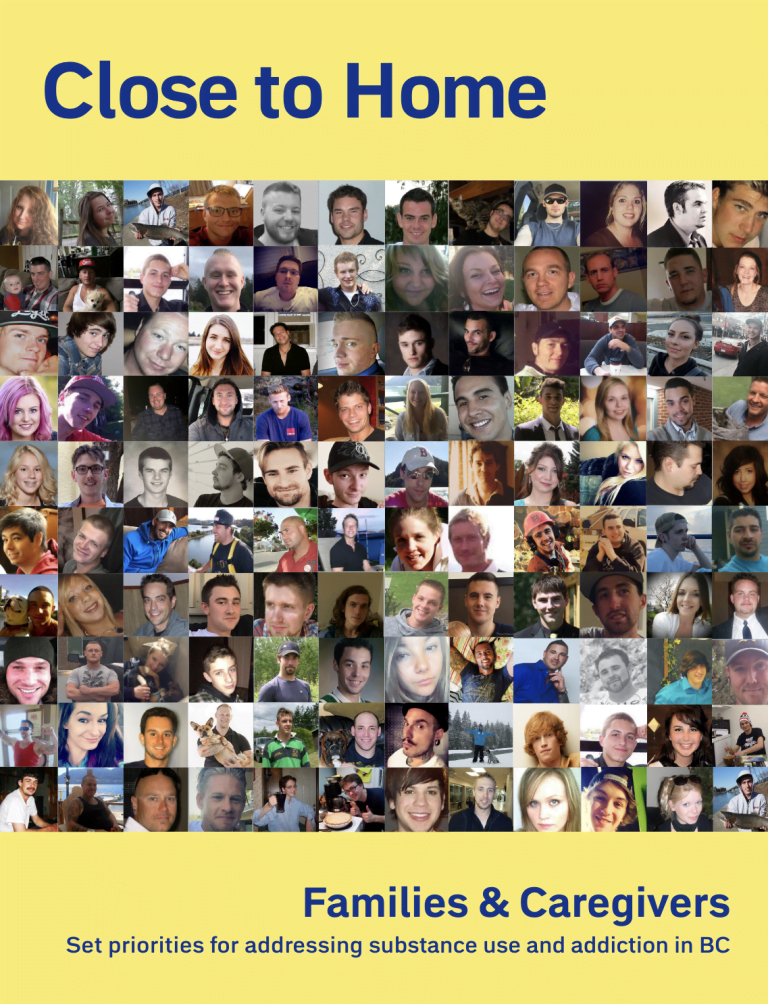17 search results
for
Government of British Columbia
Priorities
The provincial government, through the new Ministry of Mental Health and Addictions, must:
Recommendation 1: Eliminate stigma by implementing a provincial public awareness campaign to educate all communities on substance use disorders. Families must be consulted in the development of this work.-
Category and theme:
Audience:
Groups affected:
Priorities
The provincial government, through the new Ministry of Mental Health and Addictions, must:
Recommendation 2: Work with the Ministry of Health to create a strict set of regulations and a monitoring system for all recovery centres in the province. This will include security, standards of care and safe discharge plans.-
Category and theme:
Audience:
Groups affected:
Priorities
The provincial government, through the new Ministry of Mental Health and Addictions, must:
Recommendation 3: Work with the Ministry of Education to ensure that provincial public school education strategies include standardized, up-to-date drug safety messages from primary through secondary school, including mental health literacy and coping strategies and timely referrals to treatment and supports for individuals experiencing problems.-
Category and theme:
Audience:
Groups affected:
Priorities
The provincial government, through the new Ministry of Mental Health and Addictions, must:
Recommendation 4: Support the creation of a comprehensive, regularly updated, online resource site, to facilitate access to counselling, patient housing, and financial assistance and thereby improve the chances for families to see success in the recovery of their loved ones.-
Category and theme:
Audience:
Groups affected:
Priorities
The provincial government, through the new Ministry of Mental Health and Addictions, must:
Recommendation 5: Work with public safety partners to acknowledge the harmful impacts of criminalization and punitive drug policies in driving the addiction and overdose crisis, and work with the federal government to decriminalize the possession and use of illicit drugs in Canada.-
Category and theme:
Groups affected:
Priorities
Together, the provincial government and regional health authorities must:
Recommendation 6: Build a more timely and porous communication system allowing better information flow between service providers who provide care to people with substance use problems. This, in turn, will allow for a personalized continuum of care to be established either on demand or following admission to the Emergency Department.-
Category and theme:
Audience:
Groups affected:
Priorities
Together, the provincial government and regional health authorities must:
Recommendation 7: Greatly increase capacity to train all healthcare professionals who care for people with substance use disorders and concurrent mental disorders with evidence-based treatments and compassionate, trauma-informed responses. This will include fellowships for physicians, nurses, pharmacists, social workers, and psychologists.-
Category and theme:
Audience:
Groups affected:
Priorities
Regional health authorities must:
Recommendation 8: Empower families by increasing inclusion of and support for family or caregivers of loved ones with substance use disorders. This includes involving families in overdose emergency response planning, local addiction services development, and establishing supports for families provincially to bring their life experiences and knowledge to inform.-
Category and theme:
Audience:
Groups affected:
Priorities
Regional health authorities must:
Recommendation 9: Ensure adequate sustainable funding for and equitable access to the full range of evidence-based care delivery options, including nurses, nurse practitioners, home health care providers, and integrated teams which include family members. The goal is optimize access to evidence-based, customized, culturally sensitive, and age appropriate pathways to recovery.-
Category and theme:
Audience:
Groups affected:
Priorities
Regional health authorities must:
Recommendation 10: Increase capacity for rapid access to evidence-based treatment in the province. Individuals who seek treatment need immediate access to evidence-based care.-
Category and theme:
Audience:
Groups affected:
